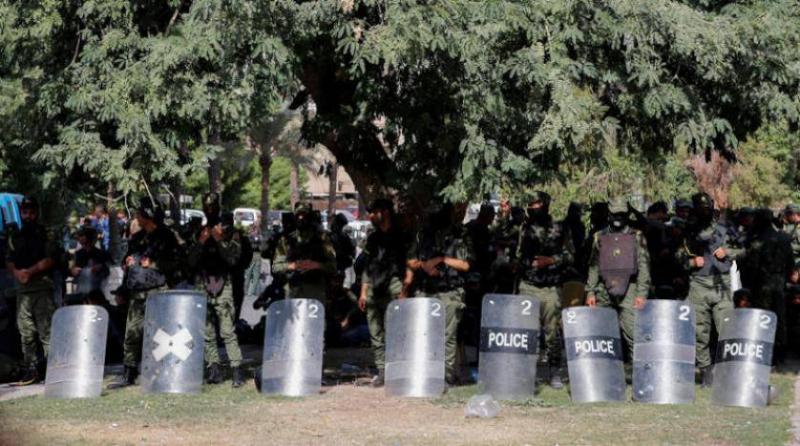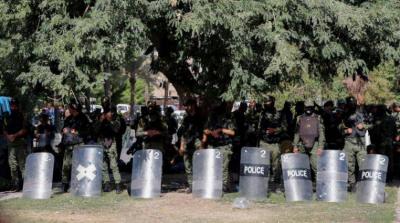Iraqi factions are increasing their pressure on the government to change the results of the elections that these groups lost, while their leaders are engaged in tough negotiations to form the largest bloc. Field sources reported that elements from the factions received orders to leave their positions and head to the protest sites around the Green Zone in central Baghdad. The number of angry protesters is rising in Baghdad and other cities; some have set up tents near government headquarters, but it cannot be said that this movement is controlling the situation on a large scale.
At the same time, the leaders of the losing factions are holding "preparatory meetings" with the winning blocs to reach a formula that guarantees their presence in the new government. Political sources indicate that the factions "want to minimize the damage." An Iraqi politician from the "State of Law Coalition" revealed that the forces of the "Coordination Framework" attended a meeting sponsored by Nuri al-Maliki, which included a representative of Muqtada al-Sadr. Participants in the meeting examined several hypotheses for forming the government, the most important of which was "settling the losses of the factions." The Iraqi politician stated that "the participation of the Fatah Alliance in the government is possible if a reasonable share is guaranteed for them."
Leaders in the Sadrist movement view the protest movement led by the factions as part of the losing powers' maneuvers to strengthen their position in negotiations. A leader within the Sadrist bloc stated that "his winning coalition with the largest seats does not want to divide the Shiite ranks during negotiations," but he commented on the factions' pressures by saying they are "a maneuver that will waste everyone's time."
During the preparatory meetings, various lists of candidates for the premiership were proposed, excluding Nuri al-Maliki, and included a Sadrist figure and Mustafa al-Kadhimi, the current Prime Minister. However, the variable that may later develop into a dramatic driver of events is that al-Kadhimi's name may not only be unacceptable to the Sadrist movement, but the Maliki coalition may also agree on it as a decisive solution to the intersections among competing Shiite leaders.
In contrast, it seems that the Kurdish and Sunni forces would not mind granting al-Kadhimi a second term as Prime Minister, but would not move forward in any negotiations unless with a "decisive and strong Shiite party capable of resolving the current crisis." On the other hand, it appears that al-Sadr hides more than he reveals, and the proposal of al-Kadhimi’s name might be a long-game maneuver aimed ultimately at revealing a candidate from outside the circulating nominations.




